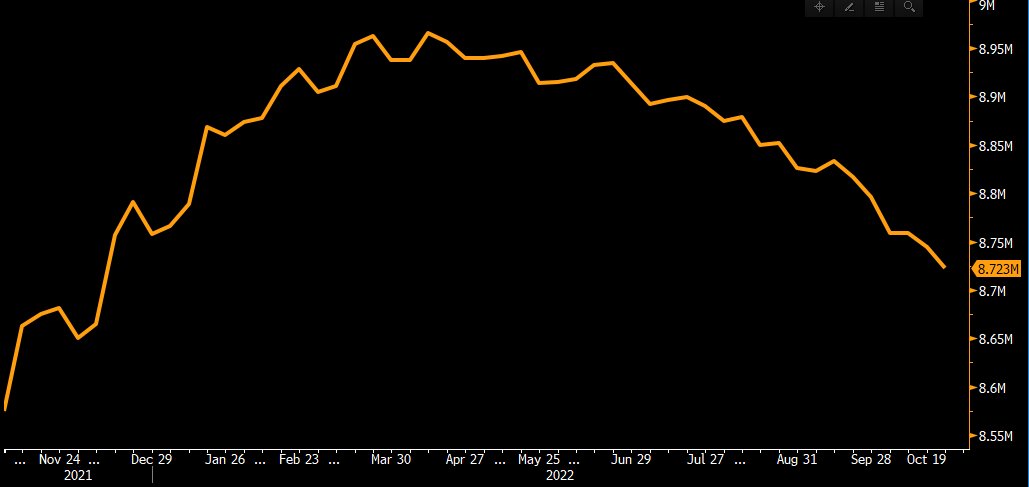
Looking at a sample of 85 hiking cycles since 1960:
3 main points:
- Central Banks on average stop hiking as soon as inflation has decelerated a meagre 10% from its peak (e.g. from 5% to 4.5%)
- The first rate cut is only 7 months after the last hike
1/2
3 main points:
- Central Banks on average stop hiking as soon as inflation has decelerated a meagre 10% from its peak (e.g. from 5% to 4.5%)
- The first rate cut is only 7 months after the last hike
1/2
- The median rate cut in the first year is ~200 bps
Assuming this Fed monpol cycle to be a median one and YoY (core) inflation to stabilize & slightly fall in 6 months, that would imply:
1) Fed on hold in H2-23 (priced)
2) 200 bps of cuts by H2-24 (not priced)
Source: GS
2/2
Assuming this Fed monpol cycle to be a median one and YoY (core) inflation to stabilize & slightly fall in 6 months, that would imply:
1) Fed on hold in H2-23 (priced)
2) 200 bps of cuts by H2-24 (not priced)
Source: GS
2/2
• • •
Missing some Tweet in this thread? You can try to
force a refresh






